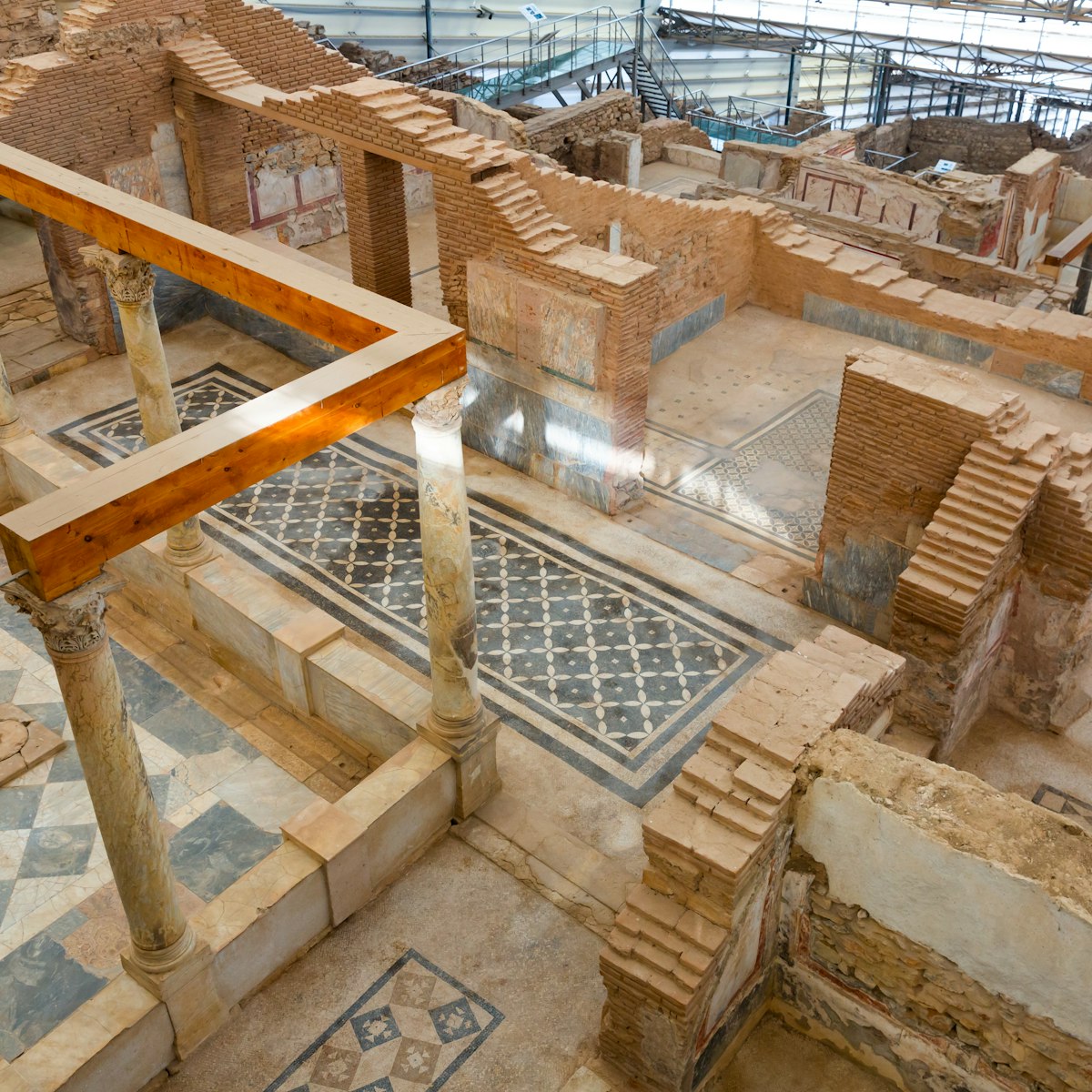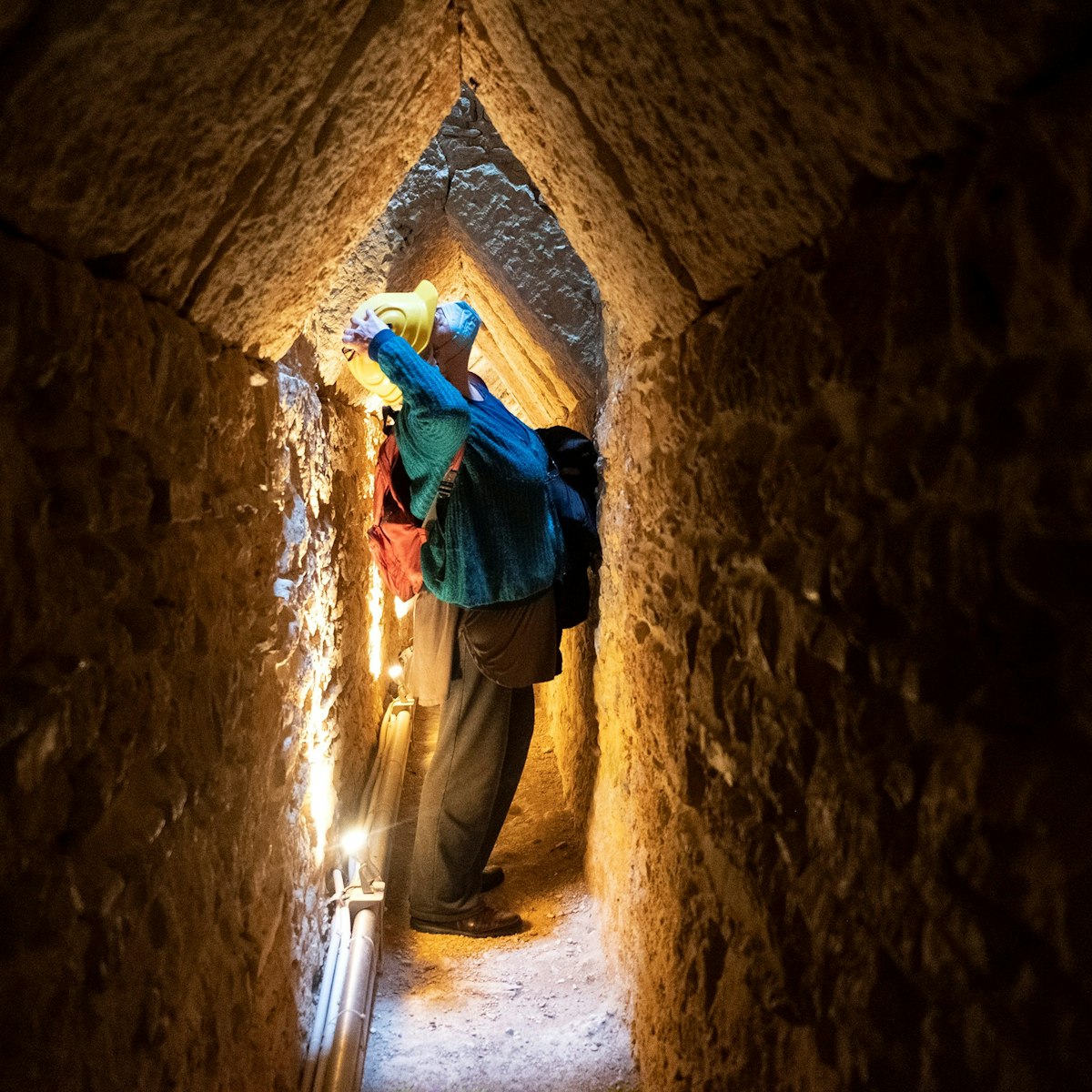Baths were situated at the main entrances to ancient cities so that visitors could be disinfected and wash before entering. These 2nd-century ones stand at the entrance to Upper Ephesus beside the Magnesian Gate erected under Emperor Vespasian in the 1st century AD. Greco-Roman baths also served a social function as a meeting and massage destination. This is one of four bath complexes at Ephesus.
Lonely Planet's must-see attractions

19.39 MILES
Priene enjoys a commanding position just below Mt Mykale, giving it a real natural grandeur. This Greco-Roman site is delightful to explore, with pine…

Dilek Peninsula-Büyük Menderes National Park
22.02 MILES
This spectacular 277-sq-km mountainous reserve on the Dilek Peninsula has walking trails, stunning vistas, azure coves for swimming, and deep-green…

0.38 MILES
Of Turkey's hundreds of ancient cities and classical ruins, Ephesus is the grandest and best preserved. A Unesco-listed World Heritage Site, it's the best…

0.26 MILES
The roofed complex here contains seven well-preserved Roman homes built on three terraces, which are well worth the extra visiting fee. As you ascend the…

28.18 MILES
In a word: extraordinary. In 524 BC, when Pythagorio (then called Samos) was the island’s capital and a bustling metropolis of 80,000, securing sources…

1.78 MILES
Selçuk’s crowning achievement is accessed on the same ticket as the Basilica of St John, once the citadel's principal structure. Earlier and extensive…

22.04 MILES
Follow the north-coast road out of Vathy for 10km and look for a signposted dirt road to the left leading to Livadaki Beach. Here, tropical azure waters…

1.47 MILES
An essential stop on every Ephesus itinerary, this small museum contains artefacts from the ancient city, including scales, jewellery and cosmetic boxes…
Nearby Ephesus attractions
0.05 MILES
Built around AD 150, this once-lavish 1400-seat theatre boasts marble seats with lions' paws and other carved ornamentation. It was used primarily for…
2. Upper Gate (Magnesian Gate)
0.05 MILES
This is the more popular entry point of Ephesus' two entrances. It was erected under Emperor Vespasian in the 1st century AD.
0.07 MILES
Site of a necropolis dating to the 6th century BC which was later covered by the upper (or state) agora.
0.08 MILES
This large square measuring 58m by 170m, and used for legislation and local political talk, was flanked by grand columns and filled with polished marble…
0.08 MILES
The Prytaneum hosted this shrine, where the city's eternal flame was tended by vestal virgins, and was fronted by a giant statue of Artemis, now in the…
0.08 MILES
Two of six original Doric columns mark the entrance to the ruined Prytaneum, one of the most important civic structures in Ephesus. Within and dedicated…
0.1 MILES
Objects discovered in this small temple in the Upper Agora suggested that it was dedicated to the Egyptian goddess Isis.
0.11 MILES
It is thought that the ruins of the small circular building south of the Baths of Varius, which was once a church, contain the tomb of the evangelist, St…





